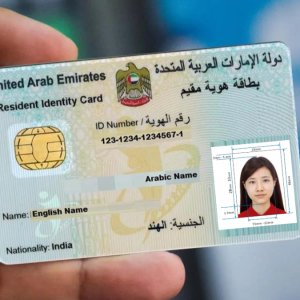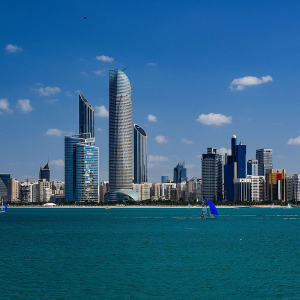In a landmark move that reflects the emirate’s commitment to fostering a dynamic, inclusive, and forward-looking work environment, His Highness Sheikh Dr. Sultan bin Muhammad Al Qasimi, Supreme Council Member and Ruler of Sharjah, has officially approved a comprehensive restructuring of the public sector’s human resources framework. This progressive step, introduced under a new decree law, is set to redefine employee welfare, job security, career growth, and operational efficiency across Sharjah’s government departments.
The decision comes at a pivotal time when modern workplaces are evolving rapidly, and the needs of employees are changing just as swiftly. With this new legal framework, Sharjah is not only keeping pace with global best practices but also setting new benchmarks for fair and transparent employment in the region.
A Vision for Empowered Public Sector Employees
The restructured HR law is built around the principle of valuing people as the most vital asset of any organisation. It aims to enhance productivity, encourage innovation, and create a work environment where every employee feels appreciated, protected, and motivated.

One of the central pillars of this new HR strategy is the emphasis on human dignity, job security, and professional development. By offering clearer policies, improved benefits, and merit-based career pathways, the decree ensures that government employees have a well-defined, fair system supporting their ambitions and livelihoods.
This move has been widely welcomed by employees and administrators alike, many of whom see it as a positive shift towards a more compassionate, accountable, and dynamic government culture.

Key Features of the New Decree Law
While the complete framework contains various intricate legal and administrative changes, several standout features of the new HR system have captured public attention and sparked enthusiasm within the government workforce.
First, the decree introduces a new classification and grading system, ensuring job roles are clearly defined, with transparent salary scales and performance metrics. This system will help eliminate ambiguity around promotions, salary increments, and job responsibilities.
Additionally, the law outlines comprehensive employee rights, including provisions for annual leave, maternity and paternity benefits, sick leave, and emergency leave. By codifying these entitlements, the government assures its workforce of consistent and reliable support throughout different phases of life.
Another notable feature is the introduction of structured grievance mechanisms, enabling employees to raise concerns and resolve disputes fairly, without fear of retaliation. This fosters an atmosphere of openness, trust, and mutual respect between employees and management.
A Fairer, More Transparent Work Culture
Perhaps one of the most significant outcomes of this new HR framework is its focus on fairness and transparency. By implementing clear, standardized processes for hiring, evaluations, promotions, and disciplinary actions, the government of Sharjah aims to eradicate favoritism and subjective decision-making from the public sector.
This commitment to equity not only boosts employee morale but also strengthens public trust in governmental institutions. When government jobs are awarded and managed based on merit and performance, it creates a positive ripple effect throughout society, reinforcing the values of integrity and accountability.
Many employees have already expressed their optimism, stating that such changes will give them a renewed sense of purpose and stability in their careers.

Sharjah’s Commitment to Human-Centric Governance
This landmark HR overhaul aligns with Sharjah’s broader vision of human-centric governance, where policies are crafted to serve the real needs of people rather than rigid bureaucratic systems. His Highness Sheikh Dr. Sultan has long championed initiatives that prioritize community welfare, educational opportunities, healthcare, and cultural enrichment.
By extending this compassionate approach to its internal workforce, the emirate reaffirms its position as a progressive, people-first society that values human dignity and social harmony.
In his address while approving the new decree, His Highness emphasized the importance of safeguarding employee rights, enhancing job satisfaction, and nurturing talent as essential ingredients for the emirate’s long-term growth and prosperity.
Training, Career Growth, and Digital Transformation
The new HR law also places a strong focus on continuous learning and skill development. Recognizing that public sector jobs today require agility, digital literacy, and proactive service delivery, the framework mandates structured training programs, leadership development tracks, and workshops aimed at upskilling employees at all levels.
This investment in human capital not only benefits individuals but also ensures that government institutions remain responsive, competitive, and capable of meeting the evolving expectations of Sharjah’s citizens and residents.
Furthermore, the decree calls for increased digital transformation within HR operations — streamlining recruitment, payroll, benefits management, and employee records through secure, state-of-the-art digital platforms. This reduces administrative delays, minimizes paperwork, and enhances overall operational efficiency.
Positive Reactions Across the Public Sector
The announcement of the new HR framework has been met with widespread approval from public sector employees, many of whom have expressed their appreciation for the leadership’s attentiveness to their concerns and aspirations.
Government staff, particularly those in mid-level and junior roles, have highlighted how the new laws offer them a clearer career path, better work-life balance, and a sense of being genuinely valued by their employers.
Senior managers and department heads, meanwhile, have praised the structured approach to workforce management, stating that it will help them lead their teams more effectively while ensuring fairness and accountability.

Sharjah Sets a New Benchmark for the Region
With this bold restructuring, Sharjah positions itself as a model for modern, inclusive governance in the Middle East. At a time when governments worldwide are rethinking how to attract and retain top talent in the public sector, Sharjah’s proactive, human-focused approach stands out as a shining example.
The emirate’s ability to balance operational efficiency with employee welfare, while embracing digital transformation and fair employment practices, reflects a mature, forward-thinking administration.
It also sends a clear message that government jobs are not just about paperwork and policy enforcement — they are about service, community building, and fostering a sense of belonging among citizens and residents.
What This Means for Sharjah’s Future
The long-term implications of this HR overhaul are substantial. A motivated, secure, and well-trained workforce translates directly into better public services, faster decision-making, and more innovative government programs.
Moreover, by institutionalizing fairness, transparency, and respect for employees, Sharjah is likely to attract even more skilled professionals to its public sector, creating a virtuous cycle of talent acquisition and organizational excellence.
This initiative also strengthens social cohesion, as public sector employees — who often serve as role models in society — can now enjoy greater job satisfaction and personal fulfillment, which inevitably influences their families, friends, and communities in positive ways.
A Move Worth Celebrating
In the grander scheme of the emirate’s development journey, this restructuring of public sector HR practices is not merely a policy adjustment — it is a profound affirmation of Sharjah’s values as a compassionate, progressive, and human-centric society.
It highlights the leadership’s recognition that sustainable growth is impossible without a content, empowered, and capable workforce driving it. By prioritizing people over processes and well-being over mere bureaucracy, Sharjah is setting a thoughtful, responsible, and inspiring example for governments across the region.
As these new policies come into effect, it will be fascinating to observe the tangible improvements in employee satisfaction, public service efficiency, and community trust in governmental institutions.
For now, public sector employees in Sharjah can take pride in knowing they work in an environment where their rights are protected, their futures are bright, and their contributions genuinely matter. And for the people of Sharjah, this promises a more responsive, innovative, and people-first government — the kind every community deserves.
Follow us on Instagram: UAE STORIES
Sharjah Announces 35% Traffic Fine Discount: What You Need to Know













